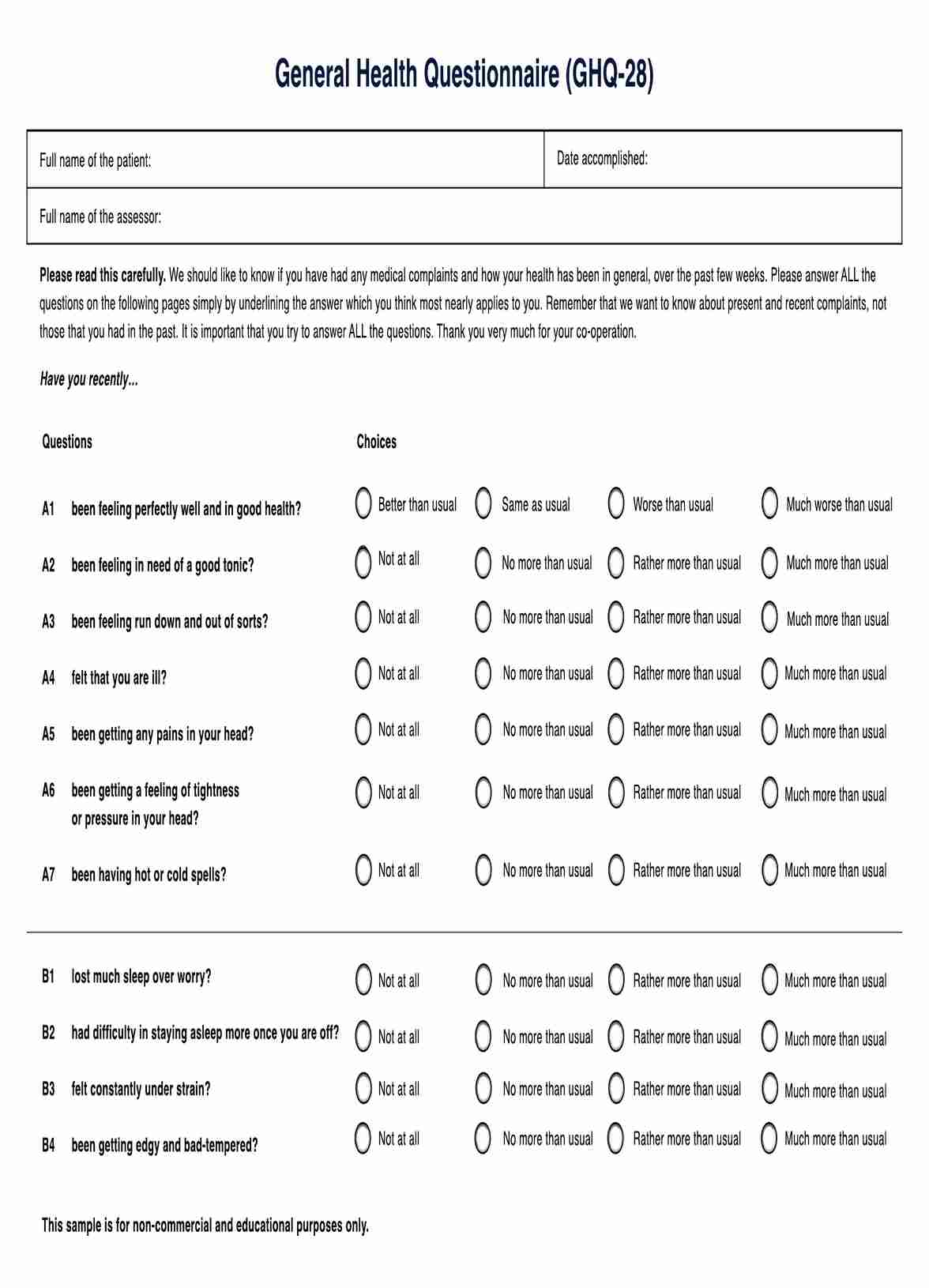Yes and no. Yes, because you will be relying on your patient’s answers. Their answers on the questionnaire reflect what they feel and how terrible the level of their psychological distress must be. The questionnaire does not actually pinpoint anything for you, but it does set the groundwork for you to get more information. Your patient's answers should serve as discussion points for you to get more elaborate answers. No, because it is a general questionnaire. Given its nature, using it might not be enough when it comes to assessing your patient, which is why we recommend conducting comprehensive examinations.

General Health Questionnaire (GHQ-28)
Use the GHQ-28 to evaluate your patient’s overall well-being and assess the level of psychological distress they could possibly be experiencing.
General Health Questionnaire (GHQ-28) Template
Commonly asked questions
Yes. Let’s say that you are not a healthcare professional and you somehow stumbled upon this guide and questionnaire. You may use it to assess yourself, but please DO NOT self-diagnose or make decisions based on your score except for seeing a professional. So, if you do score high, go see a professional for further evaluation.
It’s up to you. You can even use all of them if you want. Though, since covering more ground is something that any mental health professional should always consider, we recommend using the GHQ-28 since it asks more questions (and because it's widely used), therefore it covers more aspects of a person in terms of their well-being compared to the versions with fewer items.
EHR and practice management software
Get started for free
*No credit card required
Free
$0/usd
Unlimited clients
Telehealth
1GB of storage
Client portal text
Automated billing and online payments











